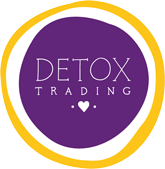For many people, caffeine is literally one of the most important things in their life. Lots of people feel they cannot get going in the morning without a cup of strong coffee, and many will struggle to get by without downing several mugs.
Caffeine is a healthy drink in many ways, boosting heart health and memory. Unfortunately, high levels of consumption can have a number of unpleasant side effects too, which means many people will need to think about alternatives.
Among these are increased anxiety, excessive urination, headaches, insomnia, muscle twitches and gastrointestinal issues.
The last of these is a particular problem when it strikes. Caffeine can commonly lead to excessive wind, heartburn and acid reflux, with bloating, pain and a burning sensation in the back of the throat among the nasty symptoms.
Of course, if things get that bad you may want to take some medicine, but there are many great dietary remedies that will be more effective in the long run by tackling the root of the problem. There are plenty of foods you can cut down on while adding other things to your diet to improve gut heath.
If you are cutting down on coffee this is a great time to look at organic tea blends. Simply switching from coffee to standard tea will lower your caffeine intake, but not eliminate it. While decaff tea and coffee are an option, the process of removing the caffeine reduces polyphenol levels.
Moreover, to simply switch to decaffeinated versions of what you were drinking before represents a missed opportunity to try something new and enjoy its health benefits.
For example, Rooibos tea offers a great option, as a caffeine-free tipple that can be drunk with or without milk, with a distinctive taste. The name is Afrikaans for Red Bush, reflecting its popularity with early Dutch settlers in South Africa, where the plant grows, but in recent years it has become increasingly popular elsewhere.
Among the great health benefits of Rooibos are that it not only lacks caffeine, but is also free of tannin, another stimulant that can affect your stomach.
Any lost benefits to cardiovascular health from not drinking coffee can be replaced by Rooibos, as it contains flavanoids, which help prevent constriction in arteries. This plant also contains antioxidants to reduce cholesterol.
Further benefits may include helping people with diabetes and bone health, although more studies will be required to establish if this is definitely the case.
Rooibos is just one of many alternative herbal teas and coffees you could try. Others include camomile, matcha, turmeric and Japanese Glenmaicha.
If you are trying to decaffinate your system, it is wise not to try to do it all at once. This is because the sudden withdrawal of what is in essence a drug will have the effects of ‘cold turkey’. This means caffeine withdrawal can leave you feeling very tired at first and struggling to get through the day.
For that reason, it certainly helps to wean yourself off it gradually, perhaps by having one cup a day for a while. But however you do it, you can be sure there are some great alternative beverages out there with great health benefits.

